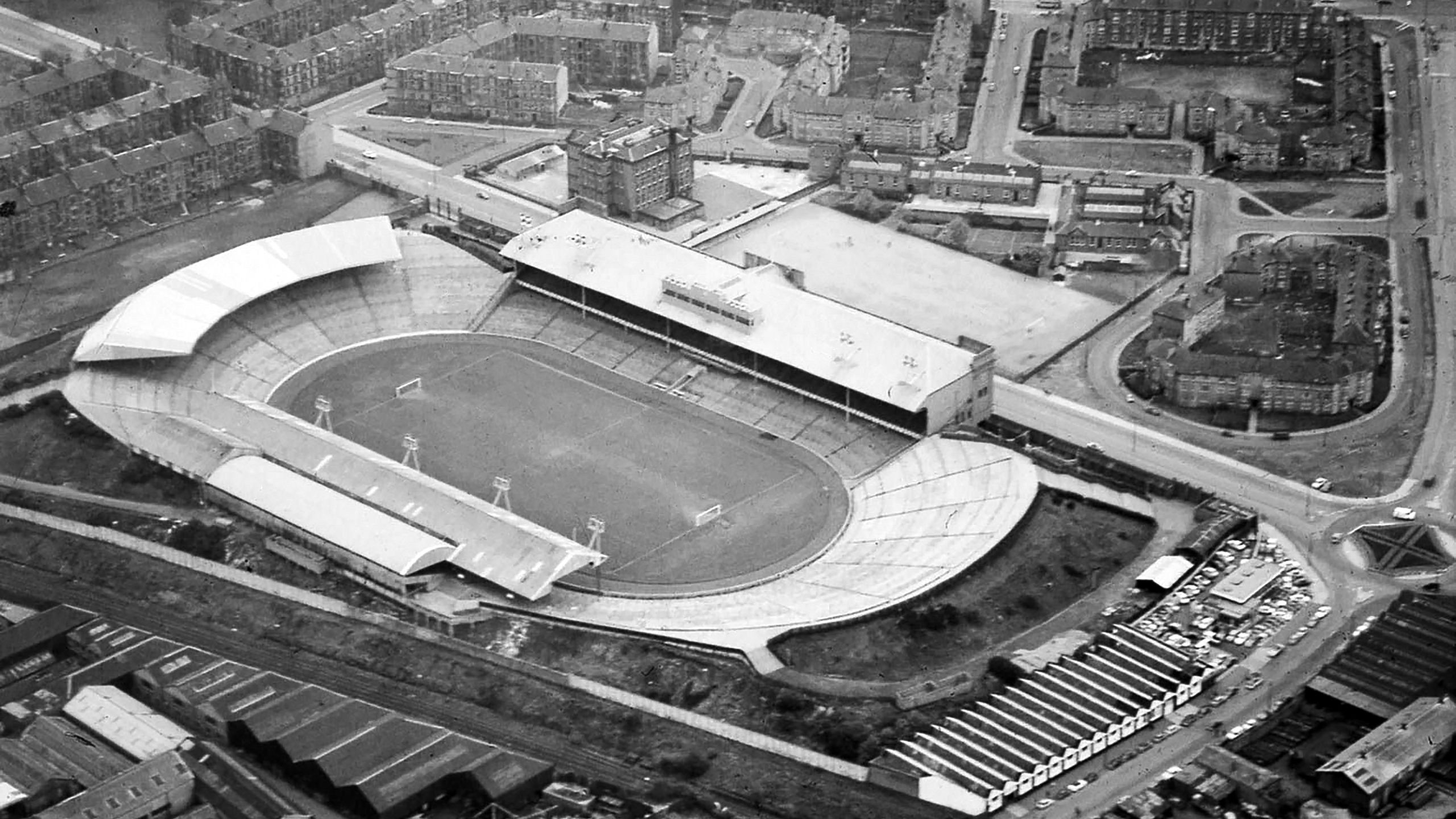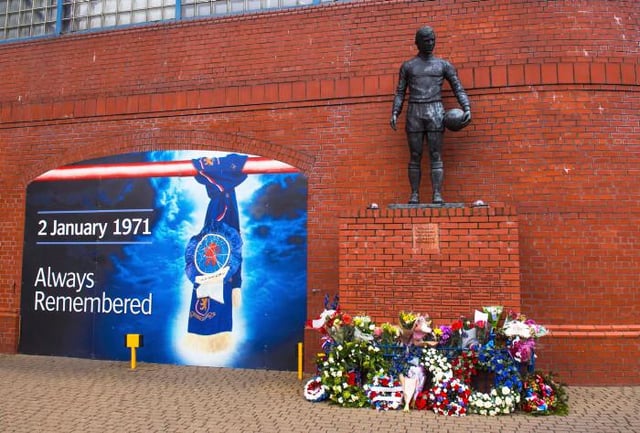Stairway 13 after the disaster
The stadium opened in 1899, as the home of Rangers Football Club, a soccer team for the Protestant citizens of Glasgow. Their arch-rivals were Celtic Football Club, a team founded by and for Irish Catholics living in Glasgow.
These 2 teams -- Rangers in blue shirts, like their counterparts in New York hockey and Texas baseball, Celtic in green and white stripes, giving them the nickname "The Hoops" -- have dominated Scottish soccer, and, together, are known as "The Old Firm."
But perhaps no 2 teams in all of sport hate each other as much, because religion is thrown into the mix. It has made both teams much bigger than they ordinarily would have been. Celtic, not the University of Notre Dame, are the most famous Catholic-themed sports team in the world. They can call upon that heritage in ways that Rangers have tried to do with the world's Protestants, but just can't.
There had previously been a disaster at Ibrox on April 5, 1902, during a British Home Championship match between Scotland and England that ended 1-1. A section of the newly built West Tribune Stand collapsed, killing 25 people and injuring about 500 others. In 1961, 2 people were killed in a crush on the narrow Stairway 13, the exit closest to Copland Road subway station. In 1967, 8 fans were injured there. In 1969, there was an incident there, injuring 26 people.
Ibrox Park, as it was named, and would have appeared, in 1971
On January 2, 1971, the teams took the pitch at Ibrox, and over 80,000 people attended. The game remained scoreless until the 90th minute, when Jimmy "Jinky" Johnstone, often regarded as Celtic's greatest player ever, scored. And so, many of the Rangers fans got up to leave.
But in stoppage time, Colin Stein (like Celtic's manager, John "Jock" Stein, that's pronounced "STEEN," and isn't Jewish or German), scored an equalizer for Rangers. Hearing the roar of the fans who hadn't left, some of those who did turned around and tried to go back to see what had happened.
This proved fatal on Stairway 13. It is widely believed that someone tripped and fell, causing a domino effect. Bodies ended up being stacked up to 6 feet deep. Among the 66 deaths were 31 teenagers, and 5 children who were schoolmates from Fife.
The incident happened so late that the on-pitch people, including the players, and the fans still in the stands, didn't know what happened until after the game was over. The players for Celtic included 18-year-old forward Kenny Dalglish, who would become a star for the team, and later for Liverpool Football Club. He would be present for the Heysel Stadium Disaster of 1985, where 39 died; and the Hillsborough Stadium Disaster of 1989, which would surpass the Ibrox Disaster of 1971 as the deadliest sporting disaster in the history of the British Isles.
Rangers F.C. were sued, and, knowing the case was unwinnable, settled. Ibrox soon underwent a renovation, including a new Stairway 13. While the Hillsborough Disaster was the catalyst for all English stadiums converting to all-seater, the Ibrox Disaster led to most Scottish stadiums doing so far sooner, and Ibrox was all-seater by 1981. Today, it seats 50,817.
A recent photo of Ibrox Stadium
In 2001, on the 30th Anniversary of the tragedy, a monument with the names of the victims was dedicated. It includes a statue of John Grieg, their Captain in 1971, and often regarded as their greatest player ever.
In 2011, on the 40th Anniversary, Grieg and Billy McNeill, Celtic's Captain at the time (though he was injured and didn't play in the game in question), led the current versions of their respective teams out for a pregame ceremony.
Foreground: McNeill (left) and Grieg.
Background: 2011 Captains Scott Brown (left) and David Weir.
Celtic won the game, 2-0.
The teams still play each other on New Year's Day when it can be arranged. When they do, they put their hate aside and commemorate the tragedy.






No comments:
Post a Comment